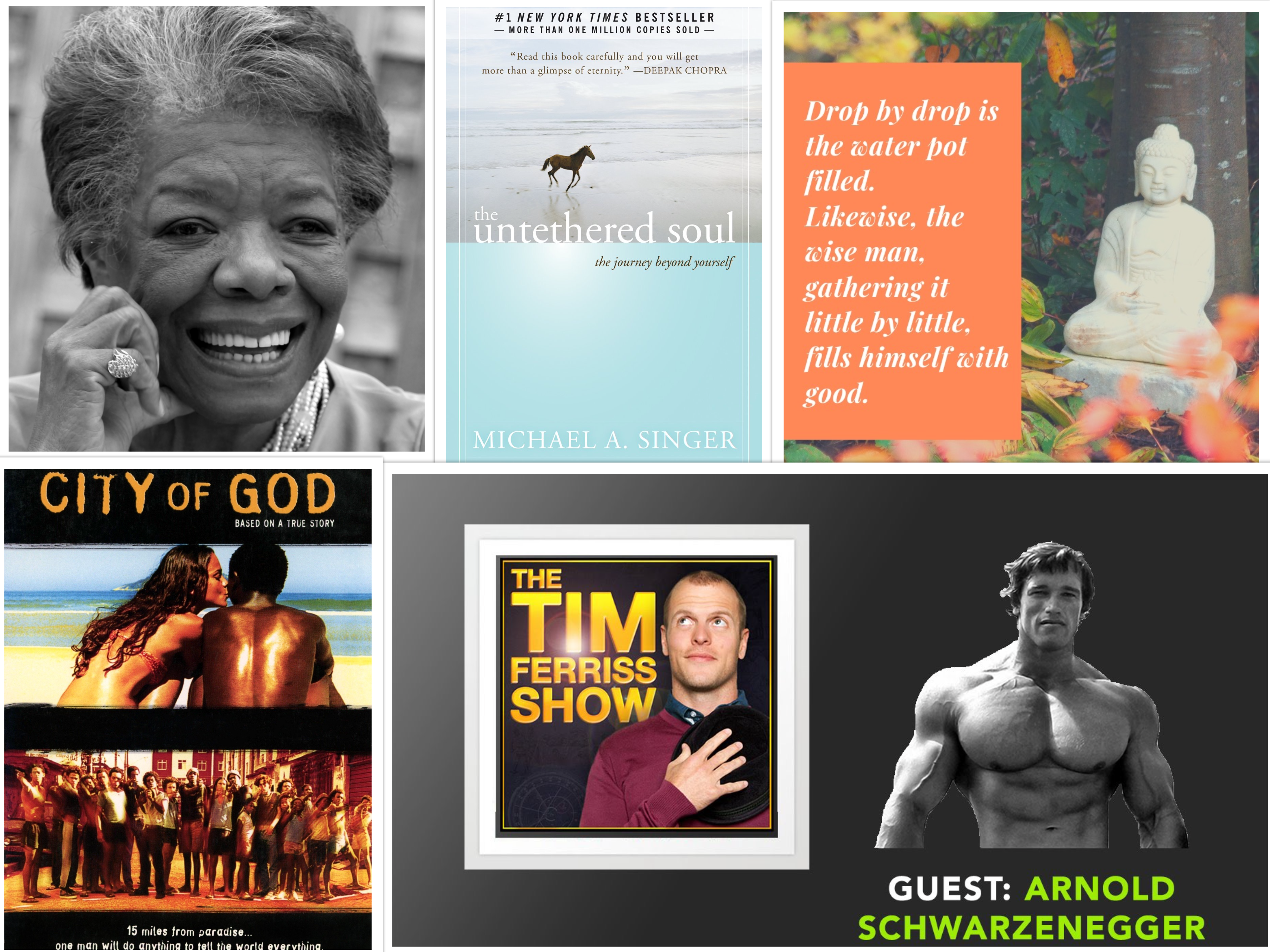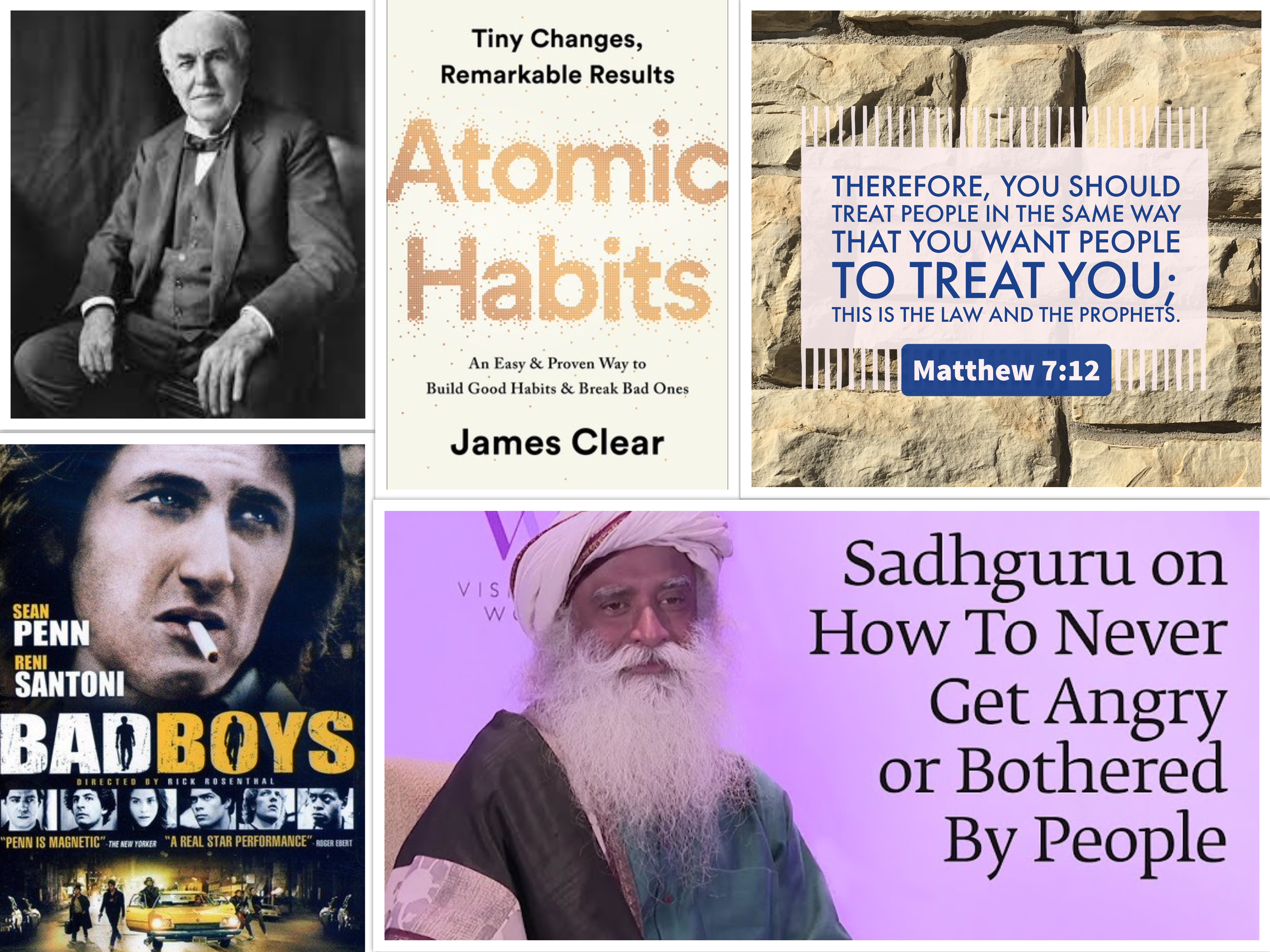Sunday Supplement #17 (September 5th, 2021)
Below is another Sunday Supplement with a quote worth sharing, a book worth reading, a movie worth watching, brainfood worth consuming, and a spiritual passage worth pondering.
I hope you take something away from these recommendations that enriches your week ahead!
Quote of the Week:
“When we base our worth on something that fluctuates, like our mobility, our body size, and shape, or our productivity, we’re setting ourselves up to feel like crap when life throws us a curveball… Our inherent worth is NOT tied to how attractive or useful we are to someone else.”
– Dr. Glenn Doyle
Book of the Week:
Personality Isn’t Permanent – Benjamin P. Hardy
Benjamin P. Hardy is an organizational psychologist and bestselling author. His blog posts have received over 100 million views and have been featured by the Harvard Business Review, New York Times, Forbes, Fortune, and other esteemed publications.
In Personality Isn’t Permanent, Hardy analyzes and debunks misconceptions around personalities that have become popular assumptions over time. He explains why tests like Myers-Briggs and Enneagram can be psychologically destructive and are misunderstood for personal application. The purpose of going over the misconceptions is to show how they don’t root anyone in a stuck pattern of behavior.
From there, Hardy shows how to break free of past misconceived personality limitations. He shows how to design a current identity based on the desired future self and reframing past traumatic experiences. He also breaks down how to enhance your subconscious to overcome addictions and limiting patterns and how to become confident in defining your life’s purpose.
The book is a fun and quick read and mixes in studies and statistics with true stories of intentional self-transformation. Some of these stories include examples of Vanessa O’Brien, who quit her corporate job and set the Guinness World Record for a woman climbing the highest peak on every continent in the fastest time; Ken Arlen, who instantly quit smoking through a change in his identity narrative; and, Andre Norman, who became a Harvard fellow after his fourteen-year prison sentence.
Personality Isn’t Permanent is well worth the read and contains many inspirations for breaking free from your past to become the person you want to be.
Movie of the Week:
Desmond Doss enlists in the Army as a conscientious objector with the aim to save lives as a medic rather than take lives as a rifleman. He faces abuse and ostracization from the Army and his peers in basic training. Doss fights for his beliefs and right to serve and ultimately proves to himself and his peers that these beliefs were worth upholding.
I’m not a big fan of war movies, but the genre has produced many brilliant films in the past that show more than a dramatization of events.
Hacksaw Ridge tells the true story of Desmond Doss, who served in the Battle of Okinawa and refused to kill people. He became the first man in American history to receive the Medal of Honor without firing a shot.
There is much to admire about this movie in addition to its story. The acting from Andrew Garfield (Desmond) and Hugo Weaving (Desmond’s Father) is superb. Teresa Palmer, Rachel Griffiths, and Luke Bracey also steal many of the scenes they’re in and add to a well-rounded cast that carries the film.
The movie was nominated for six Oscars, winning two—Best Achievement in Film Editing and Best Achievement in Sound Mixing. The other notable categories were Best Motion Picture of the Year, Best Performance by an Actor in a Leading Role, and Best Achievement in Directing.
It isn’t a film that you watch casually on a Saturday night, but if you do decide to watch it, you’ll experience a movie that does more than just pass the time.
Brainfood of the Week:
Marcus Aurelius – How to Build Self-Discipline (Stoicism) — Philosophies for Life
Philosophies for Life is a YouTube channel that breaks down philosophers’ works for a modern audience. Their channel has just shy of 30 million views and animates videos based on great thinkers like Plato, Friedrich Nietzsche, Aristotle, and Immanuel Kant.
In this video, Philosophies for Life looks at Marcus Aurelius’s autobiographical writings, Meditations. Aurelius was the Emperor of Rome from 161AD to 180AD and was considered the last of the five good emperors. His Meditations autobiography contains key insights on building self-discipline, and the video goes over ten important points from the writings.
Aurelius highlights the importance of finding your purpose by having a clear understanding of your goals and the tasks that fit within them. The biggest source of self-discipline is having a reason to do the task. If you don’t know what to do, start with what interests you. Build a practical plan of action to achieve your goals and be fully committed. Believe in yourself.
Mini milestones are a great way to keep you on your intended path and help you reach your outcome. They help you achieve your goals and avoid succumbing to being overwhelmed. Each day is a new chance to reset and move forward. Remembering that you have power over your mind, not outside events, helps you stay disciplined.
These are just a few of the topics the video discusses. You can always pick up a copy of Marcus Aurelius’s Meditations, but I find these videos helpful and quick motivational boosters.
I hope you enjoy the video and gain something from it!
Closing Spiritual Passage:
“And though I have the gift of prophecy, and understand all mysteries, and all knowledge; and though I have all faith so that I could remove mountains, and have not charity, I am nothing.”
– 1 Corinthians 13:2
In my research on this quote, I saw that versions of this passage replaced charity with love. In this context, it reminded me that love is something you can give as well as receive.
I’ve posted many times about the necessity of love in our lives to help give us meaning. This can be in the form of friendships, intimate relationships, and community. Being more aware of myself and my actions helps me connect in these different relationships and helps me connect with what’s around me. An act of kindness, whether given or received, often shines a light on my day.
I’m glad I came across this passage because it reminds me that accomplishments by themselves can mean little. I hope you find personal meaning in this passage as well.
Thank you to all my friends and family who have been there in my life.
Have a blessed week ahead!
2 Comments


